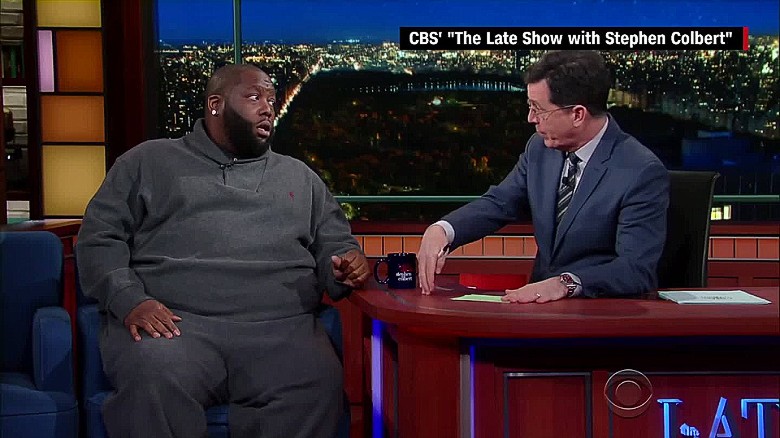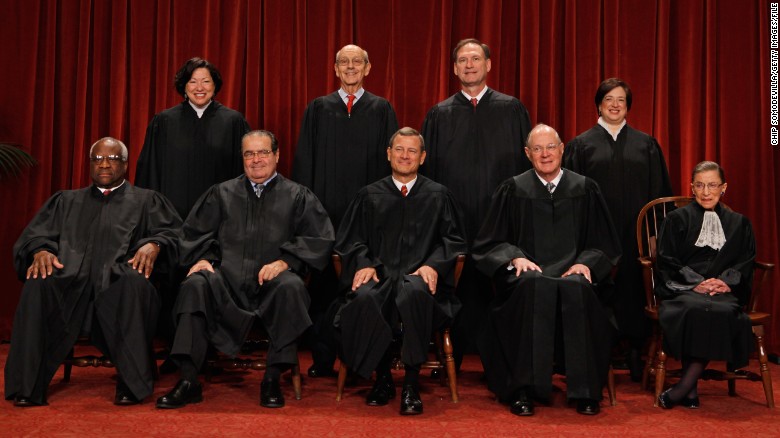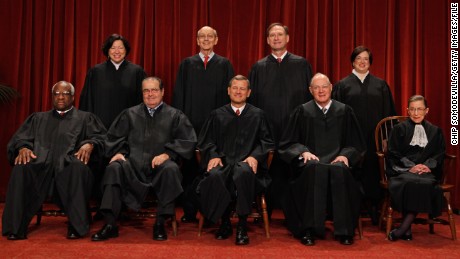*Thoughts by B. Brown (Entertainment Consultant) --- BREG
The article that you are about to read is very interesting because I truly believe that when it comes to a person's (young or old, African-American, Caucasian or another race) family member or friend being taken advantage of or being harassed, most people are going to want to say something and/or do something.
Killer Mike: Free speech -- unless it's rap?
By Michael Render (aka "Killer Mike") and Erik Nielson
Updated 8:03 AM ET, Thu February 18, 2016
acclaimed duo Run the Jewels. Erik Nielson is assistant professor of liberal arts at the University of Richmond
and co-editor of "The Hip Hop & Obama Reader" (Oxford UP, 2015). They recently co-authored an
amicus brief for the U.S. Supreme Court in Bell v. Itawamba County School Board
(CNN)If your child attended a school where male athletic coaches were accused of sexually harassing
female students, would you want school administrators to investigate the allegations or punish the young man
who made them public?
In an important case now before the U.S. Supreme Court -- Bell v. Itawamba County School Board -- a
Mississippi high school decided to punish the young man for expressing his concerns in a rap song, in the
process raising serious questions about students' First Amendment protections as well as broader questions
about the role of race in determining when those protections apply.
Mississippi high school decided to punish the young man for expressing his concerns in a rap song, in the
process raising serious questions about students' First Amendment protections as well as broader questions
about the role of race in determining when those protections apply.
The case dates back to December 2010, when several female students told a fellow student, aspiring rapper
Taylor Bell, that two of their coaches were allegedly engaging in highly inappropriate sexual behavior -- allegations that the girls eventually affirmed in sworn affidavits.
Taylor Bell, that two of their coaches were allegedly engaging in highly inappropriate sexual behavior -- allegations that the girls eventually affirmed in sworn affidavits.
Convinced that any report of this misconduct to school officials would fall on deaf ears, Bell posted a rap song
to Facebook and YouTube that identified the coaches by name and lambasted their behavior.
to Facebook and YouTube that identified the coaches by name and lambasted their behavior.
Drawing on the long tradition of social protest in rap music, as well as the profane and violent rhetoric that is
common to the genre, the song takes (metaphorical) aim at the coaches with phrases like "f***ing with the wrong
one gon' get a pistol down your mouth (Boww!)"
common to the genre, the song takes (metaphorical) aim at the coaches with phrases like "f***ing with the wrong
one gon' get a pistol down your mouth (Boww!)"
Bell, who had a nearly spotless disciplinary history,recorded the song away from school during winter break,
and he never played it or performed it on campus.
and he never played it or performed it on campus.
Nevertheless, school officials -- who, it should be noted, did not investigate or deny the allegations against the
coaches -- eventually learned about the song and suspended Bell, forcing him to attend an "alternative" school for six weeks. During the disciplinary process, administrators never notified police. They never bothered to search Bell's locker.
coaches -- eventually learned about the song and suspended Bell, forcing him to attend an "alternative" school for six weeks. During the disciplinary process, administrators never notified police. They never bothered to search Bell's locker.
In other words, nobody at the school appeared to believe that the song was a threat. Even one of the coaches
identified in the song said he thought it was "just a rap."
identified in the song said he thought it was "just a rap."
And yet after Bell appealed his punishment, arguing that his song was being misrepresented, the School Board
upheld his suspension on the grounds that he had "threatened, harassed, and intimidated" school employees. The School Board's misguided decision was later upheld by the Fifth Circuit Court of Appeals in a divided opinion.
upheld his suspension on the grounds that he had "threatened, harassed, and intimidated" school employees. The School Board's misguided decision was later upheld by the Fifth Circuit Court of Appeals in a divided opinion.
Now if the U.S. Supreme Court agrees to hear the case, it has the chance to get things right.
As we argued in an amicus brief filed on Bell's behalf -- a brief that has drawn the support of numerous scholars
and well-known rap artists alike -- Bell wasn't being punished for making threats against school employees,
even if that was the school's justification. Instead, he was being punished for using the wrong art form, rap music, as his voice of protest.
and well-known rap artists alike -- Bell wasn't being punished for making threats against school employees,
even if that was the school's justification. Instead, he was being punished for using the wrong art form, rap music, as his voice of protest.
Rap, which grew out of black and Latino communities that were facing urban decay at its worst, has been
contentious, sometimes polarizing, for as long as it has existed. No doubt, this is in large part because of
rappers' willingness to confront institutions of power and openly defy social conventions with language that is
provocative, even offensive, to some.
contentious, sometimes polarizing, for as long as it has existed. No doubt, this is in large part because of
rappers' willingness to confront institutions of power and openly defy social conventions with language that is
provocative, even offensive, to some.
Bell certainly uses this type of language in his song, at times directing it at specific individuals, but in doing so he
is following a long line of platinum-selling rappers -- including Ice Cube, Eminem, Nas and Jay Z -- who have built
careers and made millions doing the same thing.
is following a long line of platinum-selling rappers -- including Ice Cube, Eminem, Nas and Jay Z -- who have built
careers and made millions doing the same thing.
Throughout those careers, none of their fans ever believed that Ice Cube would kill former Los Angeles Police
Chief Daryl Gates, that Eminem would kill his wife, Kim, or that Nas and Jay Z would kill each other -- all claims
the rappers made in their songs.
Chief Daryl Gates, that Eminem would kill his wife, Kim, or that Nas and Jay Z would kill each other -- all claims
the rappers made in their songs.
Likewise, we don't assume that Quentin Tarantino, Stephen King or Johnny Cash carry out the (sometimes
extreme) violence depicted in their art -- because we acknowledge it as art.
extreme) violence depicted in their art -- because we acknowledge it as art.
But as we have noted before, rap is often denied that respect, particularly in the criminal justice system, where
amateur rappers, almost always young men of color who lack the name recognition (and bank accounts) of their
professional counterparts, are routinely prosecuted for their music, either because people believe that rap should
be read literally or because they just don't like it.
amateur rappers, almost always young men of color who lack the name recognition (and bank accounts) of their
professional counterparts, are routinely prosecuted for their music, either because people believe that rap should
be read literally or because they just don't like it.
The administrators at Itawamba Agricultural High School just didn't like it. Although they maintain that the song
was "disruptive and threatening," none of them acted as though the song were a real threat; even the Fifth Circuit
denied that it rose to the level a "true threat" (a category of speech not protected by the First Amendment).
was "disruptive and threatening," none of them acted as though the song were a real threat; even the Fifth Circuit
denied that it rose to the level a "true threat" (a category of speech not protected by the First Amendment).
Instead, what's clear is that people were offended by Bell's brazen attempt to stand up for his fellow students.
During Bell's hearing before the school's Disciplinary Committee, one committee member made the school's
motivations clear, telling Bell, "Censor that stuff. Don't put all those bad words in it. ... The bad words ain't
making it better."
During Bell's hearing before the school's Disciplinary Committee, one committee member made the school's
motivations clear, telling Bell, "Censor that stuff. Don't put all those bad words in it. ... The bad words ain't
making it better."
This isn't the first time officials at Itawamba Agricultural High School have tried to silence and marginalize
students they find offensive.
students they find offensive.
In 2010, the school made headlines for canceling a prom rather than allowing two lesbian students to attend as a
couple. One of the young women, Constance McMillen, took the school to court to defend her First Amendment
rights, and she won.
couple. One of the young women, Constance McMillen, took the school to court to defend her First Amendment
rights, and she won.
Now it's Taylor Bell's turn.

.jpg)









No comments:
Post a Comment